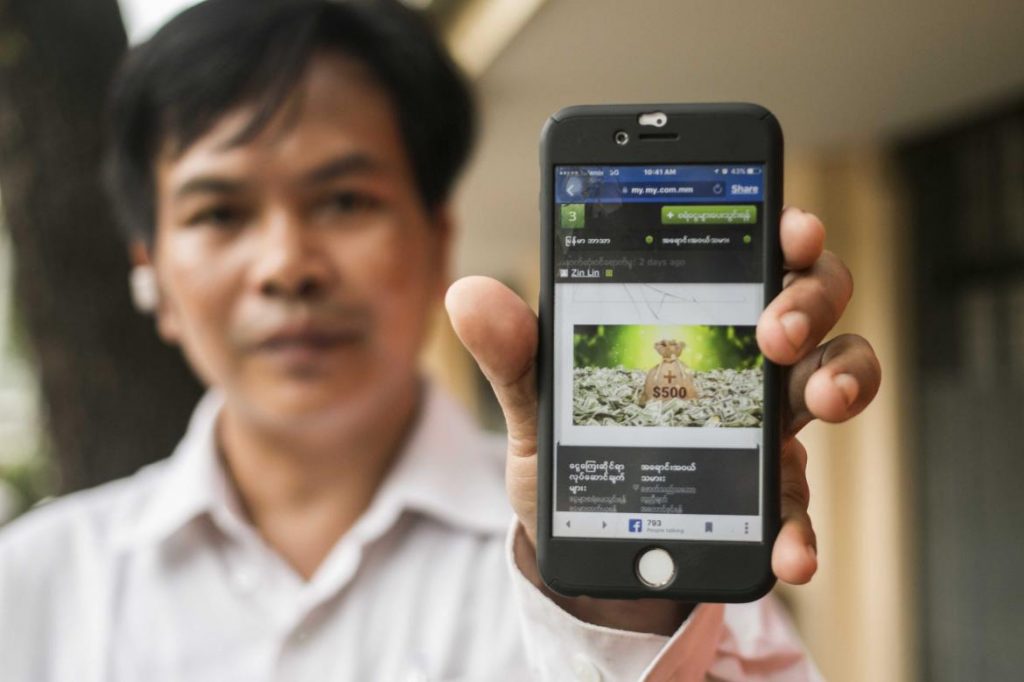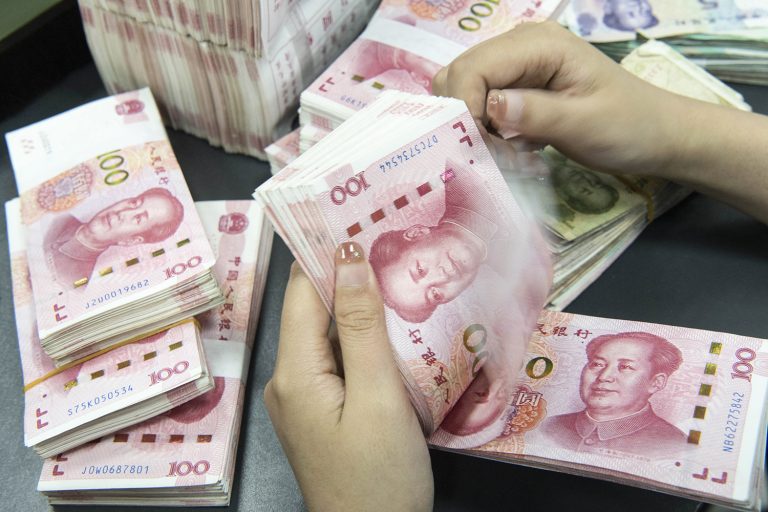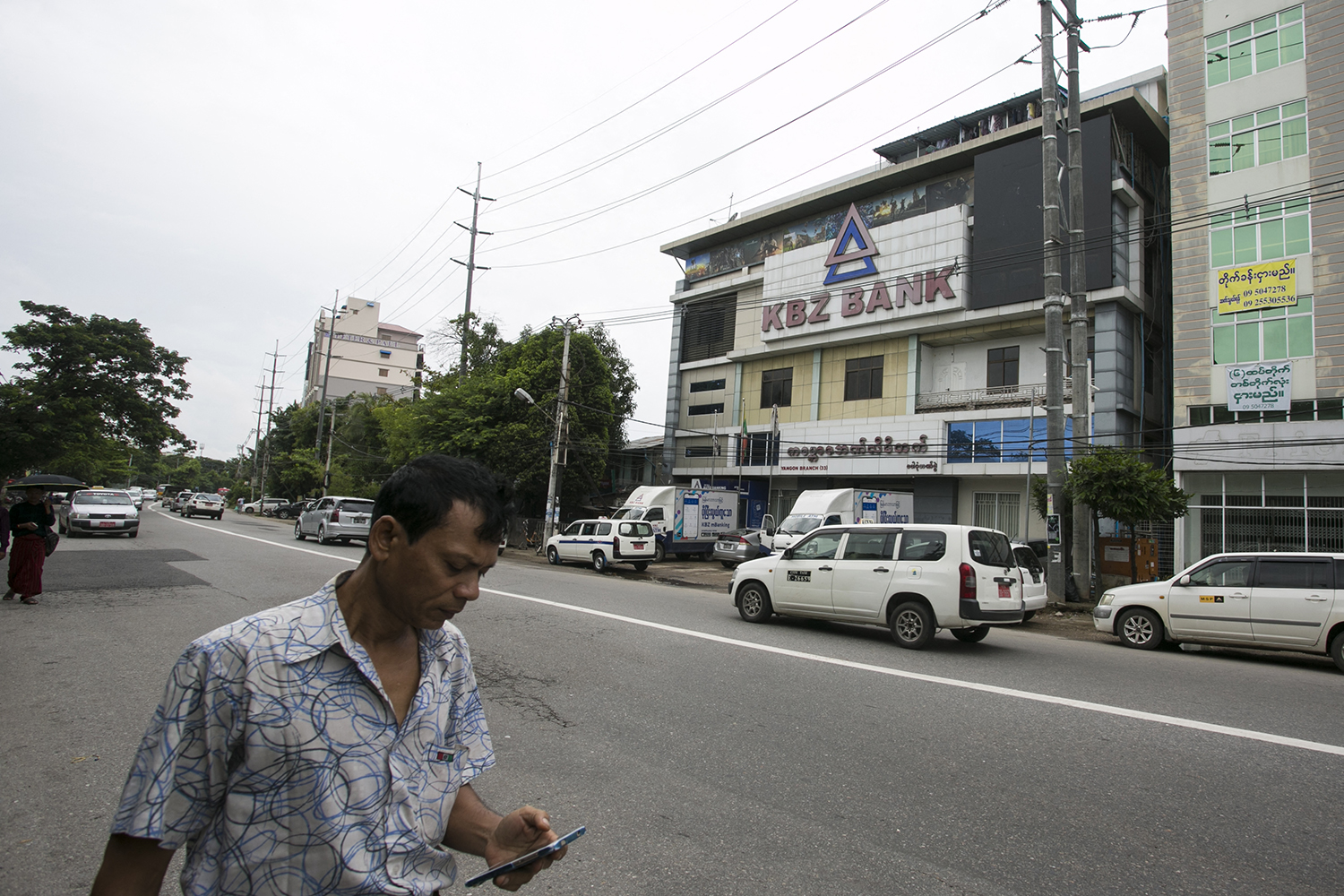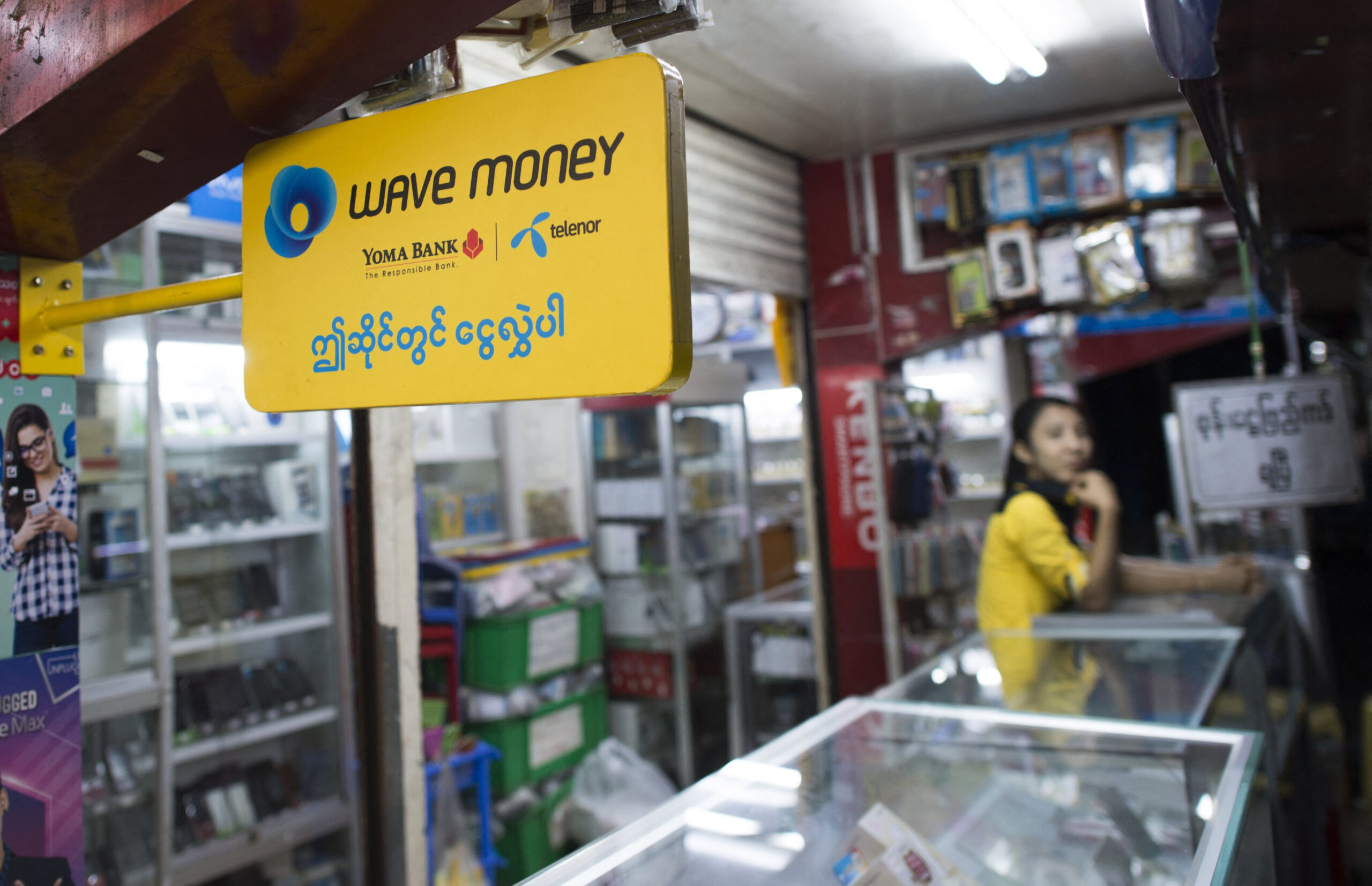A firm with links to murky dealings abroad has established an office in Myanmar, and several questions have been raised over their practices.
By HEIN KO SOE & THOMAS KEAN | FRONTIER
“Want to drive a Lexus RX200T? Just deposit US$1,000, trade five lots, and get your lucky draw number. Start driving now!”
“Come and get your US$123 bonus and start trading.”
In recent months, Myanmar-language ads with messages such as these have been appearing in Facebook feeds across the country. Promoting a company named FX, they announce the arrival in Myanmar of online retail forex trading – a complex, highly speculative endeavour that is growing rapidly in popularity even as the number of professional forex traders declines.
While it opened an office in Myanmar back in August 2016, it has only begun promoting itself widely in recent months. In late May, it organised an event at Hotel in late May attended by “traders and partners”, as well as local management and senior officers from company headquarters.
Support more independent journalism like this. Sign up to be a Frontier member.
The event featured the requisite speeches, free food and drink, and gadget giveaways, as well as performances from singers Myanmar Pyi Thein Dan and Ni Ni Khin Zew, and comedians Dain Daung and Khin Hlaing.
Although it’s not clear how many people in Myanmar are actually trading, company is certainly making a name for itself; its Facebook page already has 200,000 followers.
Training, not trading
For all the slick marketing, the Myanmar office – in a condominium in Ahlone Township – is fairly modest. The head of security in the building said the company moved in about three months ago. Previously Myanmar was based in Mayangone Township; a press release on the company`s website said the first office opened in August 2016.
The office features only a small logo on the front door, and another on a glass partition. On the other side of this glass wall is the “training room”, where staff from the company provide courses on how to use the trading platform. The courses cost K80,000, officers said.
The company has between 10 and 15 staff. Two of them, a woman and a man, agreed to answer questions from Frontier when we visited on August 16, but they declined to give their names.
The woman said she was a “representative” of Myanmar office. The company does not operate the forex trading service in Myanmar, she said; rather, it provides training to those who want to learn how to trade on the trading platform, which is offered overseas. She said because they had no connection to the trading, they couldn’t say how many customers there are in Myanmar.
“Company is also not operating in Myanmar. They only supported us by paying our office rent,” she said.
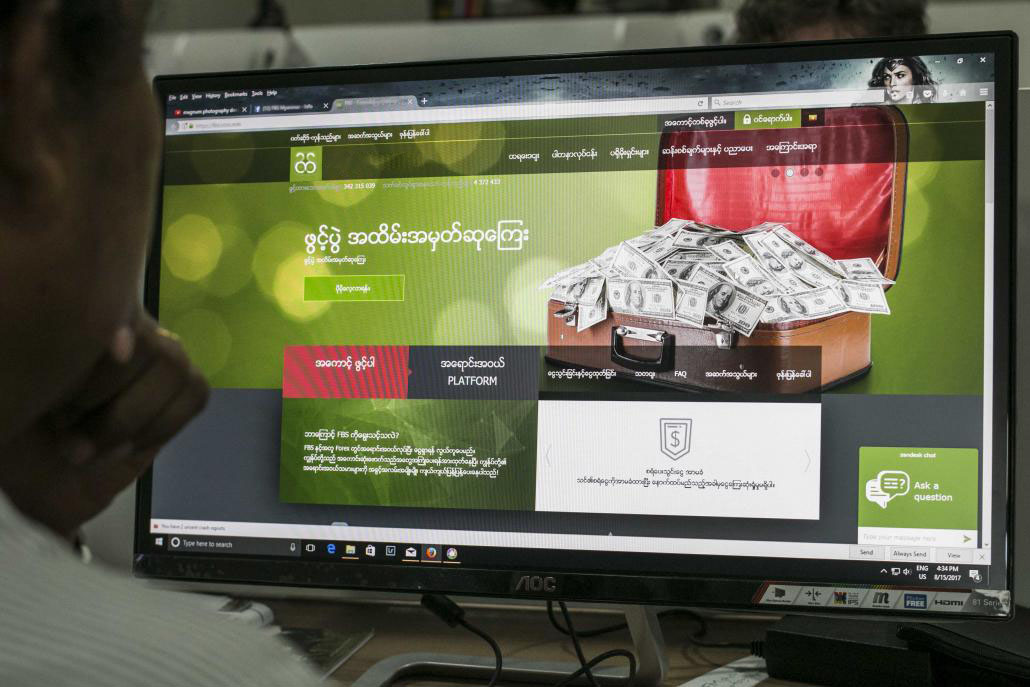
Myanmar-language promotional material for traders. (Nyein Su Wai Kyaw Soe | Frontier)
The man explained that Myanmar’s partner, Zew Forex, helps people who want to trade on the trading platform to deposit money into their account if they don’t have a credit card. The Zew Forex website says it accepts payments from the mobile banking platforms of CB, AYA and AGD banks, as well MyanPay, a local Fintech.
Like the woman, the man said they offered only training. Operations and promotion – including the Facebook advertising targeting Myanmar users – were the responsibility of the parent company.
“We are not responsible for the Facebook advertising in Myanmar language. That’s the parent company – they hired English to Myanmar translators,” he said.
The pair seemed guarded and suspicious of Frontier. They insisted they couldn’t answer any further questions about Myanmar office because they didn’t know about its operations in detail. They never give interviews to the media, they said.
Frontier subsequently confirmed that the man from the interview is a director of Myanmar company, according to the Directorate of Investment and Company Administration’s registry. Formed in March 2016, the company’s only other director is Daw Thiri Swe Zin (Frontier was unable to confirm if she is the woman interviewed at the Myanmar office).
Why would they not want to disclose this? If they offering a service without a licence, then he and the rest of the Myanmar team may have a good reason to try and stay under the radar – at least, as much as possible when you’re flooding Facebook with ads.
Belize: tightening the rules on forex
Company is licensed in the Central American country of Belize.
Although Belize ranks a lowly 60th on the Tax Justice Network’s 2015 Financial Secrecy Index, that’s mostly because it captures only a very small proportion of global financial services business; it ranks in the top 10 for secrecy, along with countries like the Bahamas, Samoa and Vanuatu.
In recent years, Belize has become a popular base for trading firms for a number of reasons. The first is that their earnings outside Belize attract no tax. Second, authorities in countries with strict financial regulation have significantly tightened rules for retail forex trading in recent years.
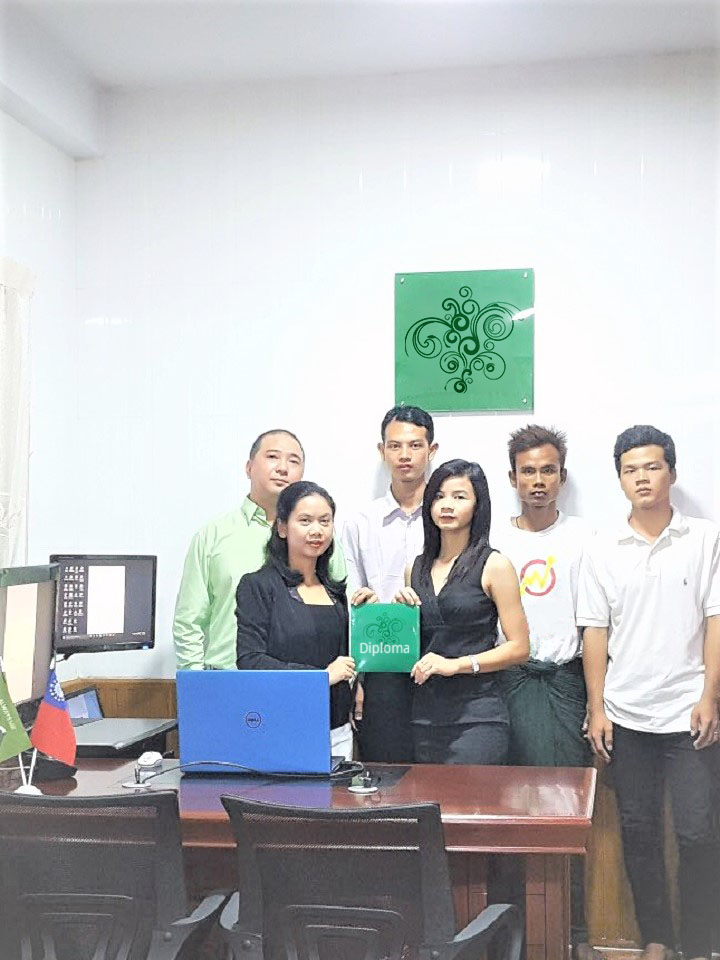
Myanmar office director, second from right, poses for a photo in Yangon (Facebook)
Since 2014, the Australian Securities and Investment Commission has been cracking down on unlicenced forex traders based in Australia and companies holding an Australian Financial Services licence but failing to meet adequate service standards. In an effort to weed out dodgy operators – most of which target clients in Asia – it has cancelled the licences of a number of companies, while also subjecting applications for AFS licences from retail forex trading firms to closer scrutiny.
Another area of focus for regulators has been leverage, which enables customers to trade at a multiple of the money in their account. In the US, for example, retail traders can now offer only 1:50 leverage, while in Japan it’s just 1:25. company, however, is able to offer up to 1:3,000 – that is, if you deposit $1, you can trade up to $3,000.
Leverage is seen as essential for taking advantage of small movements in currencies, but the dangers were highlighted in January 2015 when the Swiss Franc soared 30 percent in a single trading session. The rapid appreciation wiped out several forex trading firms.
But companies that hold a securities trading or foreign exchange trading licence in Belize are not given a totally free rein. Despite its reputation for low standards and lax enforcement, the country’s regulator, the International Financial Services Commission, has been introducing stricter regulations for forex trading firms, particularly since Ms Neri J Matus became director general in July 2015.
A raft of changes were introduced in 2016, including an annual licence fee of $25,000, and an increase in the minimum paid-up capital from $100,000 to $500,000.
Companies applying for a licence now have to provide much more information than before, prompting industry website FX Intelligence to write in a September 2016 report that “the complexity of the application package has increased significantly”.
Matus, who has 31 years’ experience regulating banks, said the IFSC had also recently started charging a regulatory free for non-compliance.
“In a nutshell, I have strengthened and improved the supervision and regulation of international financial services by implementing both offsite surveillance and onsite inspections of licensees,” she told Frontier by email.
One key change is that licencees are no longer able to offer or transact any trading with a resident of a country whose law requires a local licence for this purpose – unless they have that licence. This has prompted some to question whether forex traders would bother to use the country as a base, as they will still need licences in each individual market.
Matus further clarified that IFSC-licensed companies are unable to operate in a market where there is no regulation.
When Frontier informed Matus that there was marketing forex trading in Myanmar without a licence, she responded by saying that she had sent the company a directive instructing it “to cease and desist conducting business in Myanmar” and requested the contact details of the Central Bank of Myanmar.
Who is they?
The contact details on the IFSC website are scant. The email address is for a company named Belize Offshore Services Limited, which did not respond to requests for comment. BOSL is also the registered contact for six other companies that hold a securities trading licence from the IFSC.
The company website says the company was formed in 2009. At the time, a person, identifying himself as chairman of the board, posted on forex trading forums that company was created through a merger of a range of trading companies.
Using the Wayback Machine, an internet archiving service, it’s possible to track the evolution of company through the contracts for customers and partners – brokers who earn a commission from introducing the service to new customers – that it posted on its website.
When it launched in February 2009, the company’s full name was Financial Brokerage Services Incorporated. Its website said that its headquarters and board of directors were in Belize, while the company’s legal address was in Mauritius (another known tax haven, ranked 23rd on the Financial Secrecy Index). By August of the same year it was identifying itself as Financial Brokerage Services and had a new address in Mauritius.
While still maintaining contact numbers in Mauritius, by April 2011 it had apparently changed name to Fine Brokerage Service and was claiming to be based and regulated in Belize (another tax haven). By November, the customer agreement no longer had a registered address.
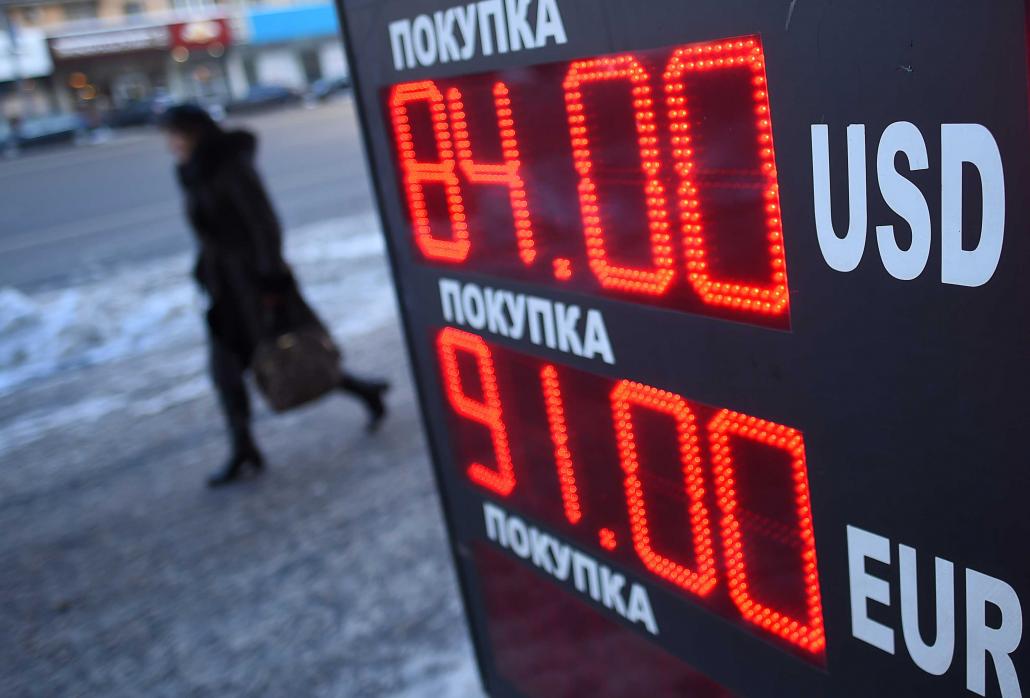
A woman walks past a board listing foreign currency rates. (AFP)
But company soon found a new home: Belize. A snapshot of the IFSC website shows that it gained a securities trading licence sometime between November 10 and November 16 of 2012.
In December 2013, company announced it had joined a self-regulated partnership, the Centre for Regulation in OTC Financial Instruments and Technologies. Industry website showed that the company had left the retail forex push into Southeast Asia, but had faced neutrality from regulators.
Partnership and customer agreements through to December 2016 give an address in Belmopan, Belize. The latest customer and partner agreements, though, suggest that company has again shifted its registered address. The documents identify the company by a new name, “Paranax Incorporated”, and give a registered address in St Vincent and the Grenadines (another country with high secrecy and low tax).
Company, through Belize, also appear to be linked to another forex trading firm with a shady past. In May 2006, they registered the trademark “Forex” with the US Patents and Trademarks Office. Before it rebranded as IGCForex.com, Forex left a trail of irate customers who claimed they had been unable to withdraw money from their accounts.
In early 2015, IGCForex.com began offering an investment plan, IGC Capital, with fixed returns of 36 percent a year. By the following year, and after multiple complaints from customers who said they had been unable to retrieve their money, the website Forex Peace Army – a kind of self-regulatory body for forex trading – had declared IGCForex a violator.
Severing ties
Although Zew Forex still advertises that traders can top up their accounts using MyanPay, the fintech recently blocked users from transacting with Zew Forex.
Managing director U Yan Naung Soe told Frontier that he had applied on behalf of company to become a “merchant partner” of MyanPay in late May.
Although MyanPay approved the request, after a few weeks it asked him to provide the company’s DICA registration, Myanmar Investment Commission permit and licence from the Securities and Exchange Commission of Myanmar for foreign currency trading.
When it hadn’t received the documents by the end of July, MyanPay cut off payments. In the meantime, though, around 80 of MyanPay’s 400 active customers (out of a total of 4,000 customer accounts) had started trading on the platform.
Yan Naung Soe said MyanPay had a duty to its customers to protect them from potentially unclear activity.
“We have since been informing our customers that Zew Forex has no permission to operate in Myanmar,” he said, adding that MyanPay had been advised by SECM that company was licensed in Belize.
“We’ve called each of our customers who are using Zew Forex encouraging them to withdraw their money. If they can’t or don’t withdraw their money, MyanPay will not take responsibility for their losses … ”
Some say they have been cheated. Yangon resident Ko Zin Lin was among those who saw the Facebook ads promoting a $123 bonus for those who open an account. In June, he deposited $50 through MyanPay and began trading. But when he tried to withdraw $14.67 and deposit it into his MyanPay account, they said the account number did not match the one with which he originally deposited the money and refused to release the funds.
“It’s the same account – I have no idea why they said that. I think they took my money so I stopped trading,” he told Frontier. “I know I’m not the only one who has this kind of problem – some of my friends have also been unable to withdraw their money.”
The final word?
On August 19, shortly before Frontier went to press, a one-word update had been made to the homepage: “Company does not provide financial services to residents of Belize, the USA, Myanmar, Brazil, Thailand and Japan”, it now reads.
But the Facebook ads were still appearing in news feeds, and searching for Zew Forex through Google continued to bring up ads for the Myanmar affiliate. On the website, there was still listed as one of the supported local payment systems, and the Myanmar language website was up and running – without, obviously, the statement that it does not offer services to Myanmar residents.
On August 21, shortly before we went to print, we again contacted the Myanmar office to ask if they were aware the website said service was no longer being offered to Myanmar residents. They refused to comment and directed Frontier instead to the live chat box on the website.
And so we met a customer service representative named “Desmond”. He was vague when asked why the English website said it did not service residents of Myanmar, while the Myanmar website made no mention of this.
However, on one point he was adamant: “We are considering stopping services to customers in Myanmar.”


